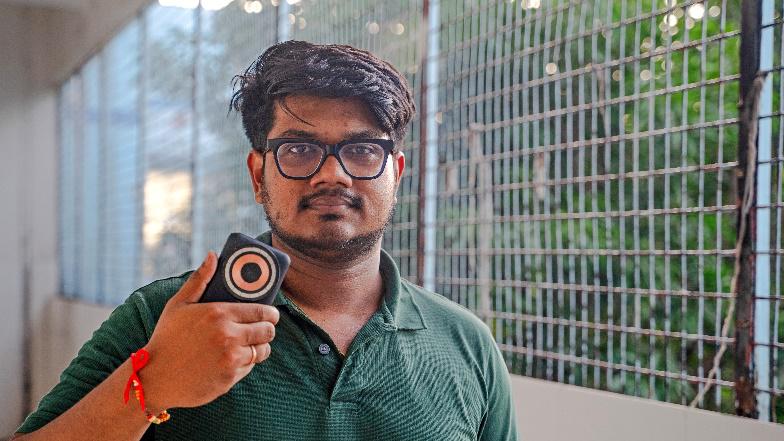IIM-Kashipur’s Tunir Sahoo wins James Dyson Award India 2025 for AI heart & lung screening tool ‘JivaScope’
The three Indian entries will now compete at the international stage, where they will be evaluated against projects from across 30 countries. The final winners of the James Dyson Award 2025 will be announced later this year.

Kolkata-based Tunir Sahoo, a student from IIM Kashipur, has won the India national stage of the James Dyson Award 2025 for his invention ‘JivaScope’. The device — a pocket-sized and AI-powered, allows individuals to self-screen for heart and lung diseases within minutes. According to an official statement, the device is designed to provide clinical-grade diagnostics in low-resource and rural settings.
As the national winner, Sahoo will receive prize money of approximately Rs 6 lakh (£5,000). JivaScope, along with two other India finalists, will now advance to the international stage of the competition, where global winners stand a chance to win around Rs 35 lakh (£30,000).
The second runner-up team, Rishi Sawant, Mohit Kumar and Soham Sawant, was selected for Thirdeye, an AI-powered assistive smart device designed for the visually impaired and blind. The device provides voice guidance and smart sensing features to support safer and more independent navigation.
The James Dyson Award (JDA) is an international student design competition run by the James Dyson Foundation. The competition is open to students and graduates across 30 countries, with the brief to design solutions that address real-world problems using effective engineering and design thinking.
Entries are first judged at the national level, with each country awarding one national winner and two runners-up. A panel of Dyson engineers then selects a shortlist of 20 international entries, from which Sir James Dyson himself chooses the global winners.
According to competition details, each national winner receives £5,000, while the global winners receive £30,000. The 2024 global awardees included Athena, a hair-loss prevention device for chemotherapy patients, and airXeed Radiosonde, a reusable sensor for weather forecasting designed to reduce e-waste.
JivaScope addresses the gap in accessible and reliable screening for cardiovascular and respiratory illnesses. According to details shared by the award organisers, the device is designed to function without dependence on internet connectivity, electricity, or a doctor’s immediate presence, making it suitable for rural contexts. Sahoo has said that the prize money will be used for clinical trials and patent processes.
OncoALERT was created in response to challenges in early detection of oral cancer, which remains one of India’s most fatal illnesses due to delayed diagnosis. Thirdeye, meanwhile, focuses on mobility and accessibility, with the inventors stating that it aims to restore confidence and independence for people with vision impairments.
The three Indian entries will now compete at the international stage, where they will be evaluated against projects from across 30 countries. The final winners of the James Dyson Award 2025 will be announced later this year.